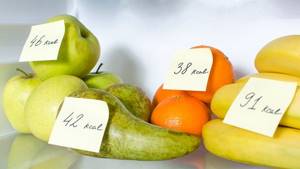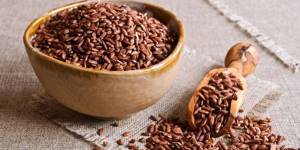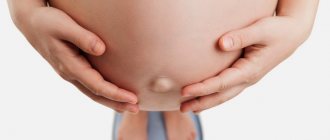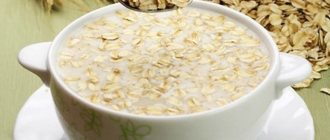Is it possible to lose weight during pregnancy?
The percentage of obese people is growing, and pregnant women are also included in this group. Doctors, who previously categorically stated that resorting to weight loss is prohibited, agree that losing weight during pregnancy is a normal practice that does not interfere with pregnancy. At the same time, you need to ensure that the child gains kilograms and the mother’s weight decreases.
In some cases, losing weight is a necessary measure to alleviate the mother's condition. A woman who is overweight has a much harder time bearing her position. She suffers from the development of edema, toxicosis, high blood pressure, and mood swings. In order to choose a suitable weight loss system during pregnancy, you need to consult two doctors - a nutritionist and a gynecologist.
What are the dangers of poor nutrition?
Improper nutrition threatens complications with the health of a pregnant woman, but the main danger is disruption of fetal development.
If there is a lack of iodine, a child runs the risk of developing thyroid pathologies, mental retardation, and girls in adolescence experience menstrual irregularities.
Lack of folic acid negatively affects the development of the nervous system.
A lack of fluoride and calcium leads to early osteoporosis, disturbances in the formation of milk and permanent teeth, and caries.
Poor nutrition during pregnancy leads to metabolic disorders, maternal obesity after childbirth, and development of infant obesity.
The birth of a large fetus is possible, which in itself is dangerous due to complications of childbirth.
How to lose weight for a pregnant woman
It is much easier if a woman followed a healthy lifestyle before pregnancy, then it will be easy for her to comply with food restrictions. Weight loss for pregnant women should be based on your doctor's recommendations regarding your diet. During the entire period of bearing a baby, it is considered normal if a woman gains about 11-16 kg. This includes weight:
- fruit – 3-3.5 kg;
- placenta – 5-6.5 kg;
- amniotic fluid – 0.6-1 kg;
- adipose tissue – 3-5 kg.
The mass of the mammary glands, uterine tissue, and the volume of circulating blood increases. To correctly calculate the weekly increase, you need to know how much the expectant mother weighed before pregnancy. With early registration, it is easier to find out when the weight begins to increase, exceeding the norm. In order to create a diet correctly, you need to take into account the duration and illness of the pregnant woman.
In 1st trimester
In the first weeks of pregnancy, weight loss is allowed according to the usual scheme. After 8 weeks, signs such as nausea and changes in taste preferences begin to appear. It is very difficult to gain weight at this time, so slight weight loss during pregnancy in the first trimester, which occurs due to toxicosis, is considered normal. If the expectant mother does not experience any discomfort during pregnancy, you can continue to eat your usual meals, eliminating snacks and weighing yourself regularly.
In the second trimester
The second trimester begins from the 14th week. The gain at this time of pregnancy per week should be about 500-800 g; if this figure is higher, the woman’s weight will increase. Shortness of breath, heaviness in the legs will appear, and it will become difficult to take daily walks. At this stage, you should contact a nutritionist and find out how to lose weight during the 2nd trimester of pregnancy. Simple rules will help you reduce your weekly gain and lose weight:
- Take food 5-6 times a day in portions of 150-200 g.
- Eliminate coffee and cocoa, replace them with herbal teas, fruit drinks, and natural juices.
- Instead of sweets, there are dried fruits, candied fruits, marmalade, and jelly.
- Give preference to bread made from coarse rye or oatmeal.
- Add more vegetables to the menu, limiting the consumption of potatoes to 1 time per day.
- Avoid fried and smoked foods; it is allowed to stew, boil, steam, and bake.
- Drink at least 1.5 liters of clean water throughout the day.
- Do simple physical exercises, walk.
In the 3rd trimester
From 28 to 40 weeks, the fetus is actively growing and weight gain occurs faster. A woman should ensure regular bowel and bladder emptying. If fluid and feces begin to accumulate in a pregnant woman’s body, this will lead to edema and the accumulation of extra pounds. You need to adhere to a normal diet, rest more often, and follow the recommendations regarding weight loss prescribed by your doctor.

- Cervical osteochondrosis - symptoms, sensations
- How to get better quickly for a girl at home
- Ways to lose weight for the lazy
Calorie intake per day during pregnancy
Energy balance is the balance between the energy supplied from food and its costs for all types of physical activity, for maintaining basal metabolism, growth, development and additional costs for women during pregnancy.
If a woman consumes as many calories during pregnancy as she needs, then, taking into account the pregnancy factor, the weight gain by the end of pregnancy should be 12–15 kg (for women who had a normal body mass index before pregnancy).
An increase in body weight during pregnancy of less than 6–7 kg is equivalent to its loss and adversely affects the health of both the mother and the fetus. And if the body weight of the expectant mother increases by more than 16 kg and this is not due to physiological reasons (multiple pregnancy, large fetus), then the reason may be associated with obesity (with an excess of calories in the diet) or fluid retention in the body (polyhydramnios, edema).
To calculate calorie needs, you need to know how much energy is expended. The daily energy expenditure of a pregnant woman consists of:
- basal metabolic energy expenditure (energy that supports the body’s metabolism and the activity of all organs and systems; it depends on age, height and body weight);
- energy expenditure on physical activity (depending on the nature of work, sports, etc.);
- energy consumption for digesting food (so-called food thermogenesis);
- energy expenditure on the growth and formation of tissues in a child (the larger the fetus, the more energy is consumed);
- additional energy costs for the development of pregnancy (pregnancy course, presence of pathologies, etc.).
What nutrients and foods give the body energy?

The amount of energy released during the digestion of a particular food product is called energy value, or calorie content.
How to lose weight while pregnant without harming the baby
In order not to harm your baby or get health complications while losing weight, you should carefully plan your diet, including foods rich in vitamins. A pregnant woman should definitely consume:
- trace elements: iodine, calcium, iron, magnesium;
- vitamins: E, A, PP, C, B;
- fiber;
- proteins;
- carbohydrates.
If all the components are present on the menu instead of junk food, they will be beneficial, so doctors answer the question of many women about whether it is possible for a pregnant woman to lose weight without harming the child. Moderate physical activity is also good for health. Sports activities carried out under the supervision of a specialist will help maintain muscle tone.
Diet for pregnant women for weight loss
A proper diet during pregnancy for weight loss ensures the daily requirement of the mother and fetus for vitamins. It is not recommended to reduce the calorie content of dietary dishes; it is better to make portions small. A pregnant woman’s menu must include the following products:
- meat;
- vegetables: cabbage, bell peppers, tomatoes, eggplants;
- fish;
- eggs;
- nuts;
- kefir and milk;
- nuts;
- cereals: buckwheat, brown rice, oatmeal, barley.
You should maintain a balance of protein, fatty and carbohydrate foods or BJU:
- proteins – 110-135 g;
- fats – 25-30 g;
- carbohydrates – 200-240 g.
Carbohydrate-rich foods are eaten for breakfast. For lunch, choose protein foods; instead of a hearty dinner, it is recommended to drink a glass of kefir or eat a salad. Meat dishes cannot be excluded from the diet, because this causes anemia in a pregnant woman. You can use nutrition systems that are safe during pregnancy. The number of kilograms decreases well on the Dukan diet, meat, salt-free. Fasting days will help you lose weight. One product is selected and consumed throughout the day - red fish, apples, cottage cheese, celery.

Exercises for weight loss during pregnancy
Fitness centers sign up for special classes. Women are put into groups for a period of time to do exercises to lose weight. Consultation with a doctor is mandatory. You can choose classes yourself, listening to your feelings and without resorting to excessive stress. The most effective are considered:
- Yoga. The complex includes static asanas with proper breathing. If you follow the trainer's recommendations, weight loss during pregnancy will happen quickly.
- Swimming . Active water aerobics is contraindicated for pregnant women, but swimming in the pool under the guidance of an instructor is possible.
- Walking _ This type of exercise during pregnancy includes walking in nature and running on a treadmill at a low speed setting.
- Fitball exercises . They help to train for weight loss, reduce stress on the spine and prepare for childbirth.
How to understand that a pregnant woman is not eating properly
At the antenatal clinic, the woman must be weighed and her abdominal volume measured. During a normal pregnancy, the development and growth of the fetus occurs equally in all women.
There are indicators of weight gain and volume that are scheduled for each week of pregnancy. Using them, the doctor monitors the dynamics of fetal development.
If they exceed the permissible limits, it means that the pregnant woman is overeating and consuming an excess amount of calories.
Before the 20th week of pregnancy, weekly weight gain should be 400 g, after 20 - 300 g.
Poor nutrition can be determined by appearance and well-being:
- lack of weight gain in the second half of pregnancy - most likely, the pregnant woman is limiting her diet;
- dry, brittle hair, nails, skin - this is a sign of anemia, lack of protein food;
- puffiness of the face, swelling - a sign of excess water consumption caused by salty, smoked or fried foods;
- flatulence, stool retention - signs of eating food that is difficult to digest;
- rashes on the face - a symptom of allergies to food products (chocolate, citrus fruits, fish, honey);
- hunger, vomiting, nausea are evidence of an unbalanced disordered diet.
What a pregnant woman should not eat
Table of prohibited foods for pregnant women
| Products | Comments |
| Raw eggs, soft-boiled, fried eggs with raw yolk. | High risk of getting salmonellosis. The disease threatens the death of the fetus. |
| Poorly fried meat, raw fish, lightly salted. | Raw meat and fish can cause helminthic infestation. |
| Some types of fruits. | Melons accumulate nitrates, unripe papaya fruits contain poison, pineapple provokes contraction of the uterine muscles and leads to dehydration. Consumption of these products contributes to the development of food poisoning or allergies. |
| Cheeses | Unprepared milk may contain bacteria that cause listeriosis. |
| Spices | Dill, cinnamon, thyme, nutmeg, and parsley cause increased contraction of the uterine muscles. Excess amounts cause miscarriage. |
| Medicinal herbs | Chamomile, sage, strawberry and raspberry leaves cause the uterus to become hypertonic. |
| Legumes, cabbage, radishes. | Cause increased gas formation and intestinal distension. The uterus is compressed, causing it to become hypertonic. |
| Coffee, sparkling water, alcohol. | Coffee is prohibited due to its high caffeine content - it increases the load on the heart, kidneys, and nervous system. Caffeine provokes hypertension. Carbonated water increases flatulence. Alcohol has a toxic effect on the fetus. |










